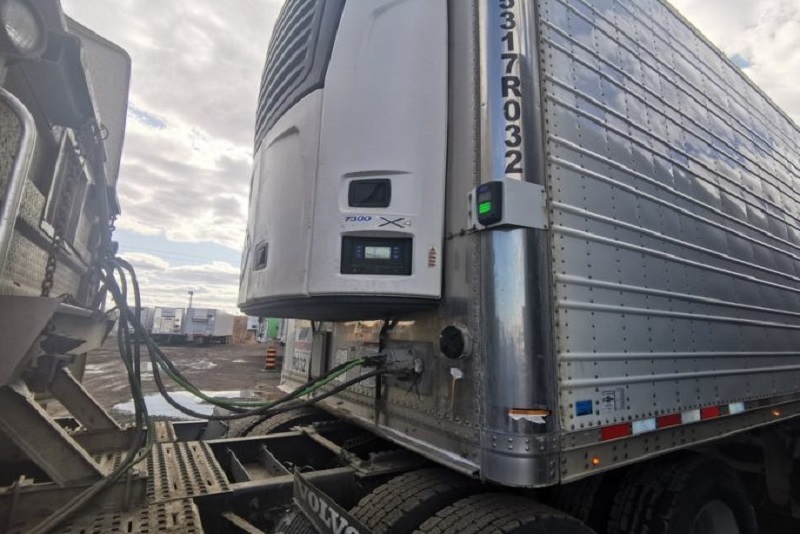
Canadian rail giant has high hopes for new intermodal reefer service. Source: The Loadstar, Date: 19th June 2023
Source: The Loadstar, Date: 19th June 2023
Canadian Pacific Kansas City Rail (CPKC) is bullish on the prospects for its Mexico intermodal reefer service launched last month despite the closure last week of one of the pioneers of the concept.
The Class I railway has invested in 1,000 53ft refrigerated intermodal containers, which doubles its intermodal reefer container fleet.
It said this would provide more shipping options to customers using its Mexico Midwest Express (MMX) premium intermodal service, which was launched in May, from Chicago via Kansas City and stations in Texas to Monterrey and San Luis Potosí.
MMX is the first single-line rail service spanning the USMCA market and offers transit times of 98 hours between Chicago and San Luis Potosi, a four-day service to/from Monterrey and three days to/from Laredo.
According to the rail company, the service is a full day faster than offerings from competitors that involve transfers between rail carriers, and it can also compete with trucks, which so far have dominated flows of refrigerated goods between the US Midwest and Mexico.
The SVP sales and marketing, bulk and intermodal, added: “This expansion of our state-of-the-art reefer equipment gives more customers the solution they need to convert to rail.”
The intermodal reefer offering, which operates under CPKC’s TempPro label for temperature-controlled services, is targeting primarily meat shipments heading into Mexico and a mix of fresh and frozen produce, baked goods and other food products going north.
But while CPKC is boldly challenging trucks in the cross-border reefer market, a pioneer of refrigerated intermodal container services ceased operations last week. Tiger Cool Express (TCE) an early player in this segment, shut down its operations amid rumours of financial woes.
TCE started in 2013, one of the first companies to embrace refrigerated intermodal containers at a time when refrigerated trailers would be detached from trucks and placed on trains for the longest part of their journey. The firm built up a fleet of some 700 intermodal reefer boxes.
It appeared to be on an expansion course until this year. In December 2021 it had acquired the Cold Connect warehouse operation of Union Pacific in Washington State that had been idle since the spring of 2020, when the railway shuttered its reefer service, citing a slump in business caused by the pandemic.
The plan was to build up intermodal reefer service in Washington, Oregon and Idaho, centred on the Tiger Tri-Cities Logistics Center in Wallula, Washington. Now the project is in limbo.
The intermodal market has been sluggish. Domestic intermodal volumes were down 7.3%, year on year, over the first four months of the year. Refrigerated domestic intermodal volumes already suffered a drop last spring.
Chronic service problems and congestion issues of the railways were undermining shippers’ confidence that carriers would be able to meet required transit times, an issue of special concern to shippers of produce, frozen food and other temperature-sensitive commodities.
Union Pacific declared over 1,000 service embargoes last year and was on the receiving end of several emergency orders from the Surface Transportation Board to deliver feed to starving chickens and cows at one of the largest US producers of poultry and ready meals.
And there were worries about a crippling rail strike as the carriers and their labour unions failed to agree on a new contract, which further undermined shipper confidence in rail.
Class I rail carriers have signalled a willingness to invest in the business and ramp up performance, but shippers are unlikely to flock to intermodal services until they see a marked improvement in railway service levels. If CPKC can demonstrate that its MMX service lives up to its promise, this should get shippers interested.
